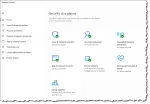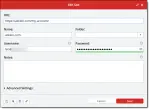Articles in Category: Security
How Do I Protect My Laptop Data from Theft?
Laptops are portable, convenient, and easily lost. If lost, all your data could easily be available to the finder. Encryption is the answer.
What’s the Best Two-Factor Authentication Option?
The best two-factor authentication approach varies based on your needs, and what’s offered by the service you’re trying to use it with.
What Should I Do About the Changes to LastPass Free?
LastPass is changing the terms of their free service. Find out if you’re affected, and what to do if you are.
Can Hotel Internet Traffic Be Sniffed?
Many hotels offer both wired and wireless internet, but with those hotel internet connections comes a security risk most folks don’t consider.
What Can a Computer Thief See If I Password Protect My Windows Sign-in?
Password-protecting your Windows login does not protect your computer’s data, particularly if the computer is stolen.
The Biggest Risk to Your Privacy Revealed
We worry a lot about privacy, but our concerns are often misplaced. Fortunately, the biggest risk to our personal privacy is right under our nose.
Can I Have Different Passwords for YouTube and Gmail?
A Google account includes Gmail, YouTube, and much more. If you want to keep those services separate, you’ll need separate Google accounts.
Why Password Managers Are [Still] Safer than the Alternatives
If you’re not using a password manager, you’re likely compromising your security more than necessary. Here’s why using one is safer.
Is Passwordless Sign-in Safe?
Signing in without a password seems almost nonsensical, yet it can be more secure than traditional sign-ins. More convenient? That depends.
You’re Just Not That Interesting (Except When You Are)
Worried about privacy? I believe we over-imagine the risks and at the same time are our own worst enemies.
How Two-Factor Authentication Works
Two-factor authentication is a great way to keep your accounts secure from hackers — even those who manage to get your password.
Will Ransomware Encrypt Backups?
A full-image backup is still the best defense against ransomware. But what if your backup gets encrypted? I’ll look at the likelihood of that happening and make some recommendations.
Granting Location Permission: Why You Should and When You Shouldn’t
Granting location permission gives apps and web sites a more accurate idea of exactly where you are. The question is: do they need or do they abuse it?
Can People Track My Email Address Location?
Email addresses can be used to locate public information, which could allow someone to track your location from your email address. Use caution when sharing it with someone you don’t trust.
Is it Safe to Allow Remote Access?
It can be safe to allow remote access, but it requires absolute trust. The risks are significant, especially since scammers have become involved.
Why Is It So Important to Use Different Passwords for Everything?
Using different passwords on different sites is not only good practice, it’s necessary to keep your accounts safe. I’ll review why, and how best to handle a plethora of passwords.
How Do I Hack Someone’s Account? How Do I Hack My Own?
These are oversimplifications of many variations on the same basic question. People want to hack into other people’s accounts, or even their own, for a variety of reasons. Some sound perfectly legitimate. Others, not so much. And others are just blatant attempts at theft, harassment, or revenge. What’s really scary is that I get these requests … Read more
Online Shopping: Just How Safe Is It?
Online shopping is ubiquitous, and yet some avoid it completely. Why are some people afraid to shop online when it’s arguably safer than offline?
Yes, Your Security Software Might Slow Down Your Computer – What to Do About It
Security tools are asked to do an important, sometimes resource-hungry task. Here’s how to mitigate their impact on your ability to use your computer.
How to Remove PUPs and Other Unexpected Things From Your Computer
Casually installing one download may result in several other things being installed. I’ll review the steps to remove these pesky, problematic, painful, Potentially Unwanted Programs, or PUPs.
Resist Those Dancing Bunnies
Scammers and malware authors often make fantastic promises to try to get you to drop your guard. I’ll discuss why it’s important to stay skeptical.
Another Reason Your Computer Might Be Slow: Prevention, Presence, or Removal of Malware
Malware can impact your computers performance before it arrives, once infected, and even after removal.
Five Reasons Ransomware Will Be Around for a Long Time
There are several reasons ransomware will be a scourge for some time to come. Most boil down to, well, us.
How to Avoid Ransomware
Avoid ransomware the same way you avoid any malware. A full backup will save you not only from ransomware, but from a host of other problems as well.
How Do I Bypass Keyloggers? The Guaranteed Way to Avoid Having Your Keystrokes Maliciously Recorded
I hear about techniques to bypass keyloggers often. The problem is, keyloggers can log much more than keystrokes. There’s really only one solution: avoid them in the first place.
What If I Lose My Second Factor?
When you lose your second factor, there are two things to be concerned about: getting into your own account — for which you should be prepared — and someone else having access to your second factor — which isn’t as scary as it sounds.
How Do You Delete Things from the Internet?
Realistically, it’s impossible to delete things from the internet. Yet in an apparent contradiction in terms, if you happen to delete something in your control, you also can’t get it back.
Why Can’t Online Services Tell Me My Password?
It’s for your own protection, and the result of fascinating mathematical wizardry. And if they can tell you your password? They’re doing security wrong.
How to Protect Data on a Laptop
You REALLY need to protect your sensitive data if your laptop runs even the slightest risk of being stolen. It’s critical that you protect it (and yourself) with these four appropriate security steps.
Are You Ready for Your Computer to be Stolen?
You might lose your hardware and any un-backed-up data on it, and possibly give a thief access to it all! I’ll cover a few of the basics. A stolen computer or lost computer can open the doors to all sorts of havoc if you’re not prepared.
Can My Work Spy on My Home Computer?
Using a computer at work puts you at their mercy. It’s technically possible your workplace could spy on all your activities.
What’s the Difference Between Windows Defender, Windows Security, and Microsoft Security Essentials?
Windows Security is Windows Defender is Microsoft Security Essentials, by any other name. Windows Defender has also had different meanings over the years.
Who’s Trying to Change My Password?
If your account has not actually been hacked, there’s little anyone can do to find out who’s trying to log in as you. But there are steps you can take to protect yourself from would-be hackers and phishing scams.
Microsoft Account Recovery Code
Possession of a Microsoft account recovery code is proof you are the account owner and should be allowed in should you ever lose account access.
What’s a “Zero-Day” Attack? A Diagram of the Vulnerability Timeline
A zero-day attack is an exploitation of a software vulnerability before there’s a fix for it. I’ll review the timeline.
Can My Workplace See What Else I Do When I Work from Home?
Working from home can be convenient, or even a necessity. Does it open up your other online activity to scrutiny by your company?
Five Steps to Better Security Working from Home
Security threats for people working from home are increasing. I’ll review steps you need to take to keep yourself, your company, and your job safe.
How Do I Leave Services I Didn’t Request?
Unauthorized use of your email address is rarely anything more serious than annoyance.
How Do I Choose a Good Password?
With occasional security breaches at service providers and rampant email account theft, password security has never been more important. Make sure you choose and use secure passwords.
Why Does Malware Exist?
Malware has come a long, long way since it began as a benign joke or proof-of-concept. Today, most malware boils down to someone, somewhere, making money.
How Can an Https Website Still Not Be Secure?
Surprisingly, it’s possible for aspects of an https site to still not be secure, if the site is improperly designed. And it’s extremely difficult to tell.
What Can We Learn from Mat Honan?
Mat Honan is a reporter for Wired magazine whose digital life was effectively destroyed due to account hacks and lax security policies. There are important lessons here.
How Do I Find Who Hacked My Email Account?
It’s natural to want to find out who hacked your email and why. Begin by recovering and securing your account. I’ll review what steps you can take after that, and their chances of success.
Why Password Vault Bugs Make Me Cringe
In those rare cases where an issue is discovered with any mature password vault, I cringe — but not because of the issue.
How Do Password Vaults Enter Passwords?
Detecting and filling in sign-in forms is a password vault’s most basic feature. I’ll look at how that works, and what to do when it fails.
What’s the Best Anti-Malware Tool to Keep Me Safe?
Over the years, your choices when it comes to anti-malware tools have become simpler, yet frustratingly imprecise.
How to Choose Good Security Questions
Security questions are a cornerstone of much internet security. I’ll look at what they are, how they fail, why you should avoid them, and what to do if you can’t.
How to Keep Information on a Shared Computer Private
When using a shared computer, it’s too easy for others to see your data or history. If you must use a shared computer, you need to protect yourself.
What Can a Technician with Remote Access Do?
Several current scams center around gaining remote access to your computer, often in the guise of fixing problems. There’s no way to know what was done, but we do know one thing: it’s a trap!
Is Online Banking Safe?
You can bank online safely, as long as you know what to look for and what steps to take.
















































